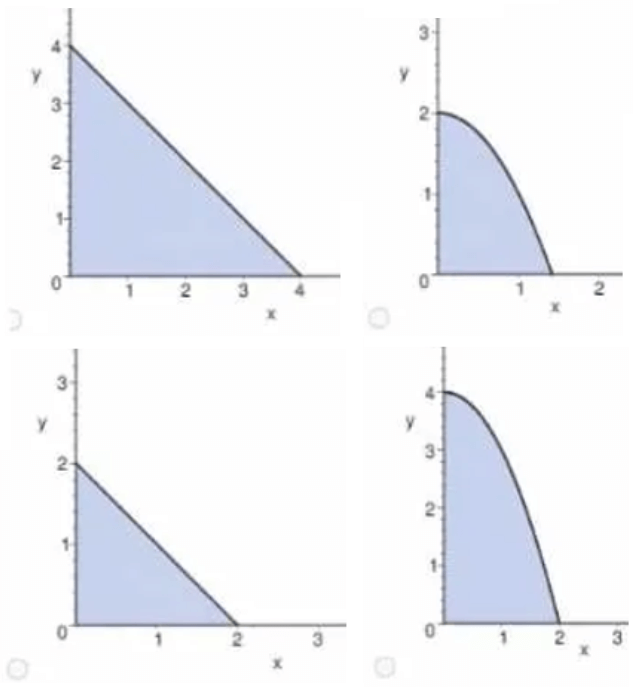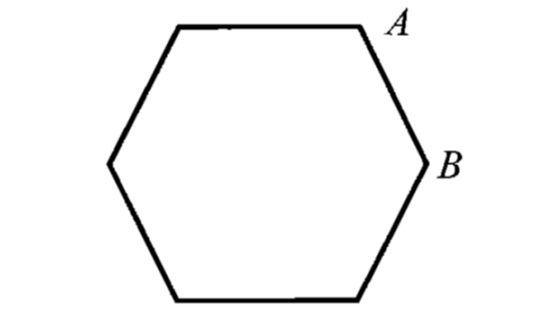PROVING LINES ARE PARALLEL WORKSHEET
Problem 1 :
In the diagram given below, if ∠1 ≅ ∠2, then prove m||n.
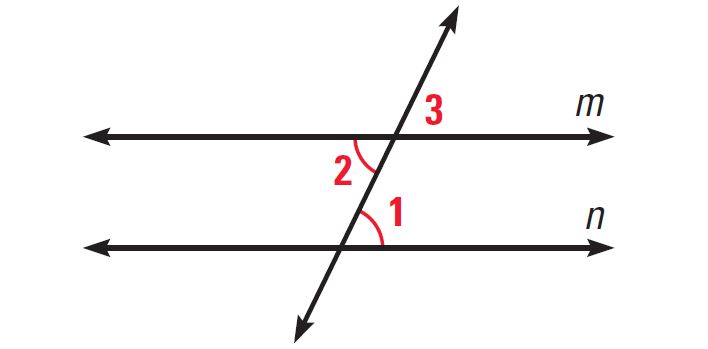
Problem 2 :
In the diagram given below, if ∠4 and ∠5 are supplementary, then prove g||h.
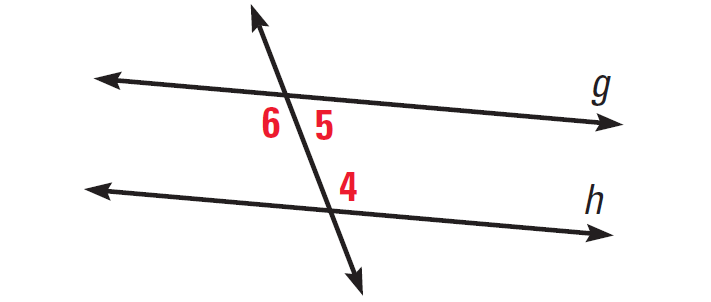
Problem 3 :
In the diagram given below, find the value of x that makes j||k.
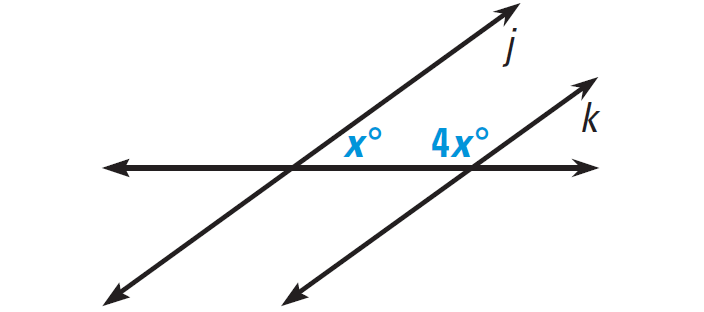
Problem 4 :
If two boats sail at a 45° angle to the wind as shown, and the wind is constant, will their paths ever cross ? Explain.
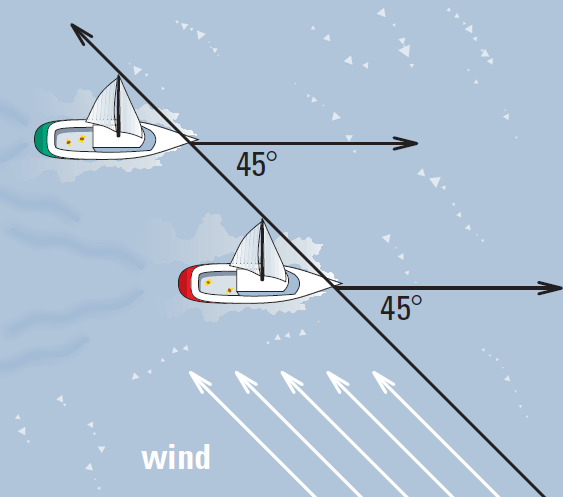
Problem 5 :
In the diagram given below, decide which rays are parallel.
(i) Is EB parallel to HD?
(ii) Is EA parallel to HC?
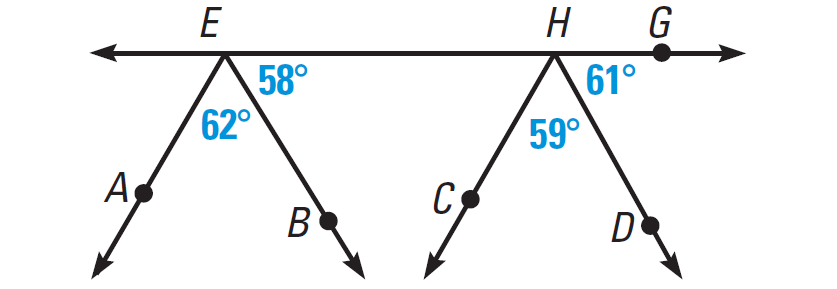

1. Answer :

|
Statements ∠1 ≅ ∠2 ∠2 ≅ ∠3 ∠1 ≅ ∠3 m||n |
Reasons Given Vertical angles theorem Transitive property of congruence Corresponding angles converse |
2. Answer :

We are given that ∠4 and ∠5 are supplementary. By the linear pair postulate, ∠5 and ∠6 are also supplementary, because they form a linear pair. By the congruence supplements theorem, it follows that ∠4 ≅ ∠6. Therefore, by the alternate interior angles converse, g and h are parallel.
3. Answer :

Lines j and k will be parallel if the marked angles are supplementary.
x° + 4x° = 180°
5x = 180
x = 36
So, x = 36 makes j||k.
4. Answer :

Because corresponding angles are congruent, the paths of the boats are parallel. Parallel lines do not intersect. So the paths of the boats will never cross.
5. Answer (i) :
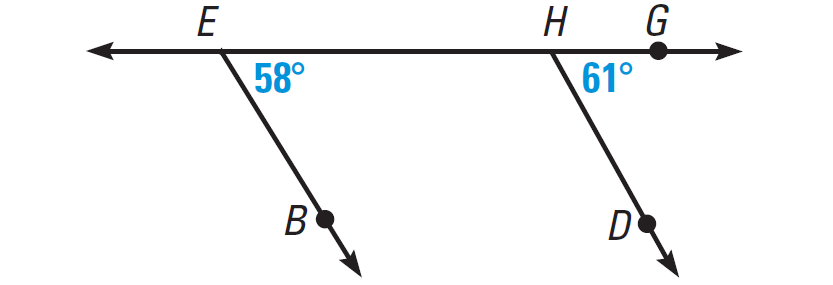
m∠BEH = 58°
m∠DHG = 61°
∠BEH and ∠DHG are corresponding angles, but they are not congruent. So EB and HD are not parallel.
5. Answer (ii) :
m∠AEH = 62° + 58° = 120°
m∠CHG = 59° + 61° = 120°
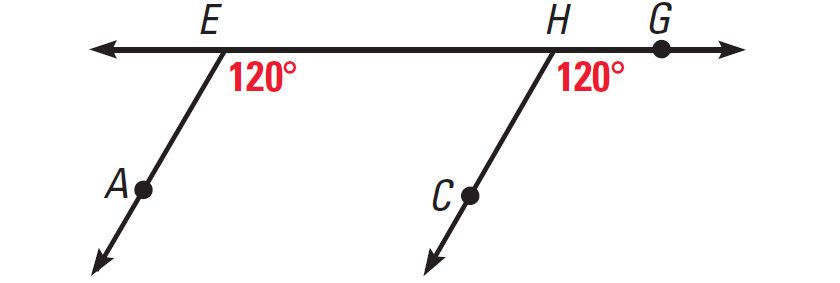
∠AEH and ∠CHG are congruent corresponding angles. So AE and CH are parallel.
Kindly mail your feedback to v4formath@gmail.com
We always appreciate your feedback.
©All rights reserved. onlinemath4all.com
Recent Articles
-
AP Calculus AB Problems with Solutions (Part - 10)
Feb 11, 25 05:37 AM
AP Calculus AB Problems with Solutions (Part - 10) -
AP Calculus AB Problems with Solutions (Part - 9)
Feb 10, 25 06:02 PM
AP Calculus AB Problems with Solutions (Part - 9) -
Digital SAT Math Problems and Solutions (Part - 108)
Feb 10, 25 07:03 AM
Digital SAT Math Problems and Solutions (Part - 108)
